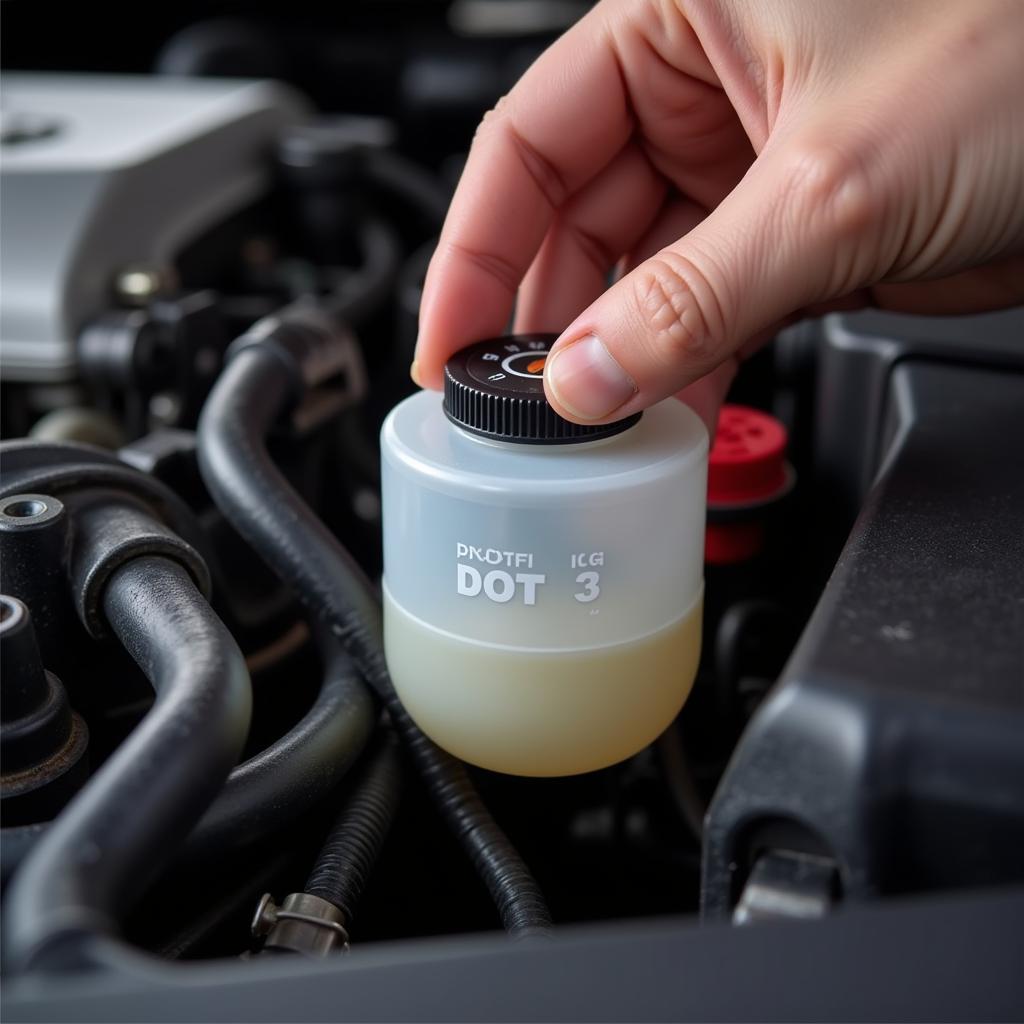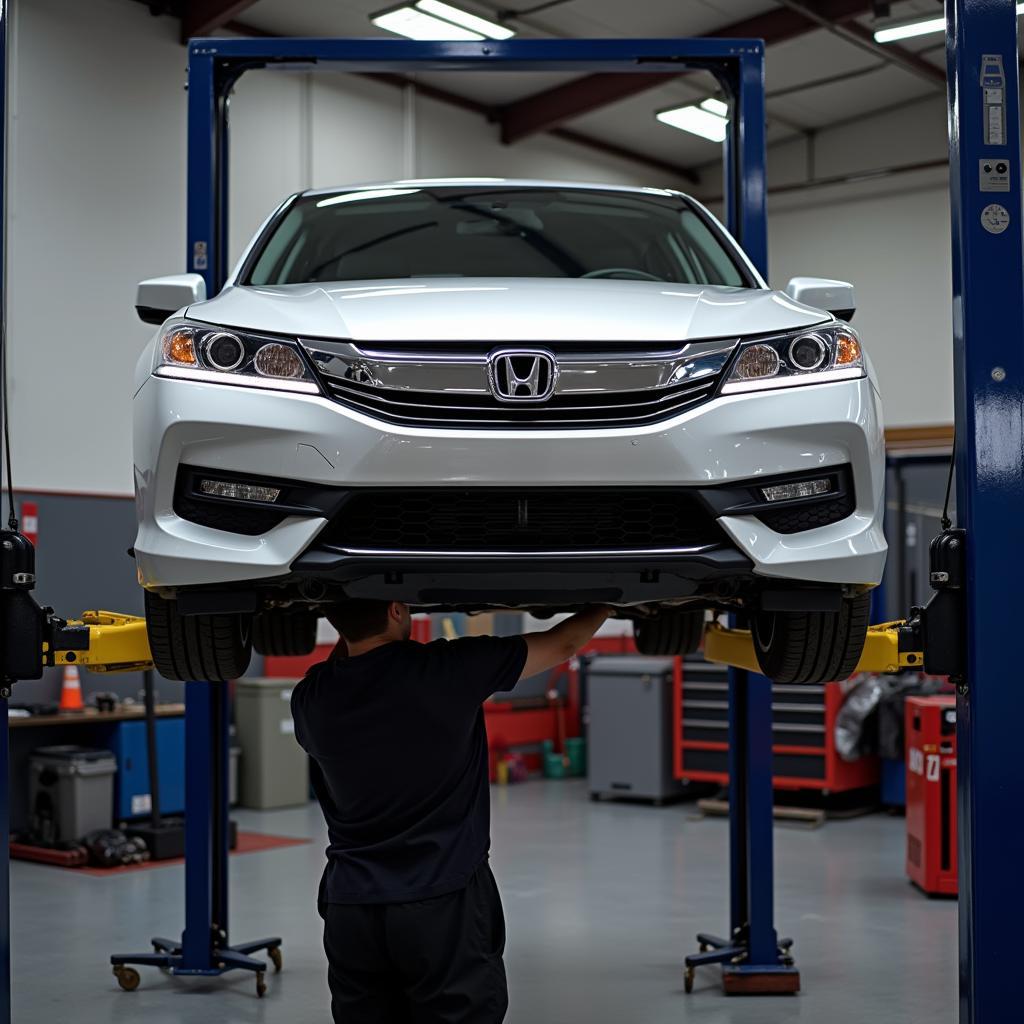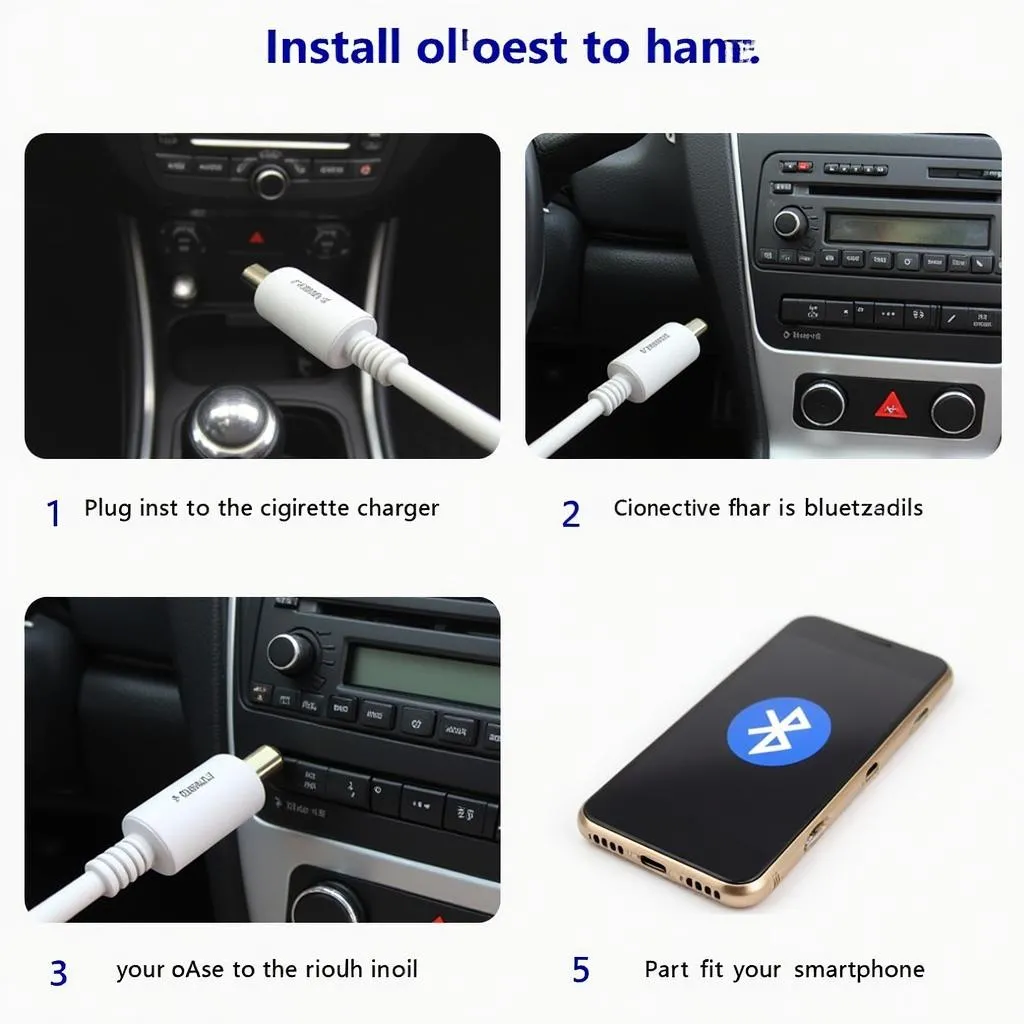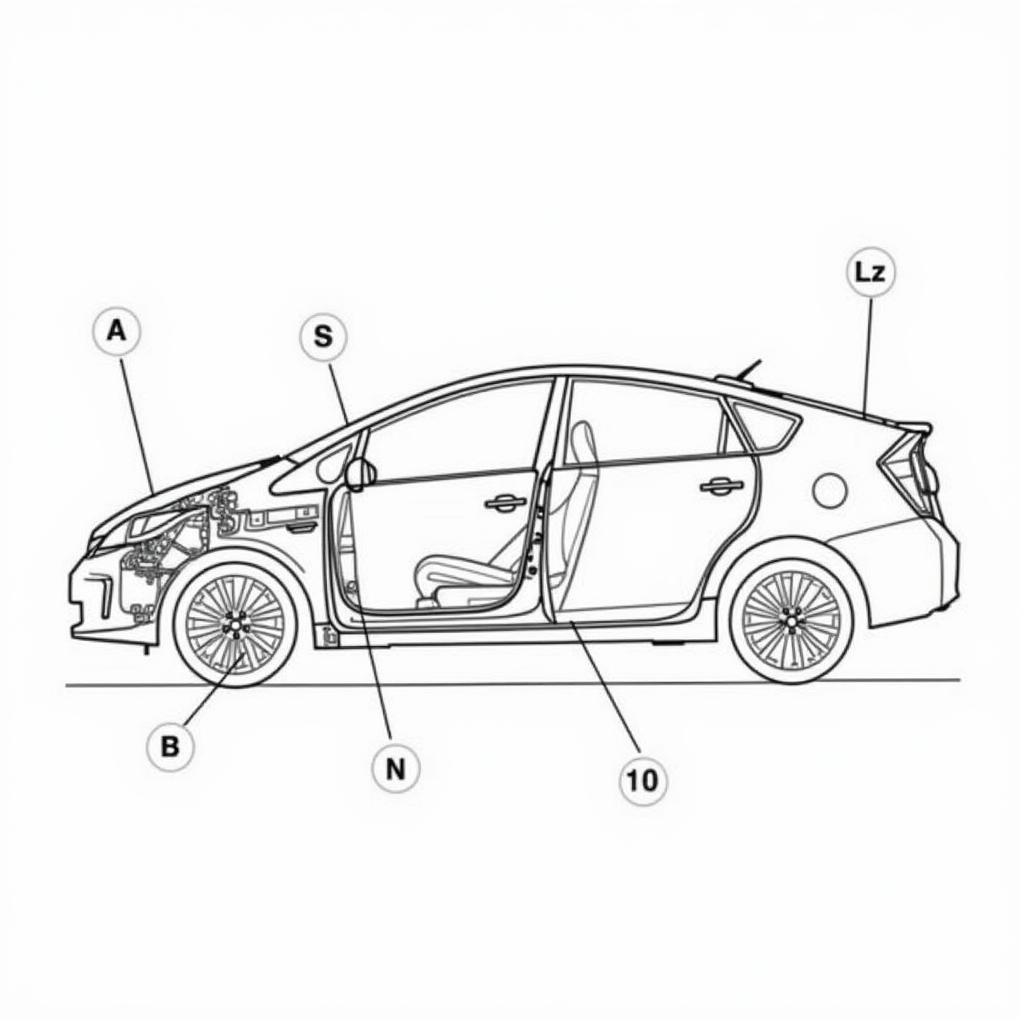A flickering brake warning light on your Honda Accord dashboard can be a cause for concern, but don’t panic just yet. While it always warrants attention, the issue might not always signify a major problem. This article will guide you through the common reasons why your Honda Accord’s brake warning light intermittently illuminates and provide you with potential solutions to get you back on the road safely.
Understanding Your Honda Accord’s Brake Warning System
Before we delve into the reasons behind a flickering brake warning light, it’s crucial to understand how your Honda Accord’s brake system communicates with you. The brake warning light is designed to alert you to potential issues within the system. When the light illuminates steadily, it usually indicates one or more of the following:
- Low brake fluid level: This is the most common reason for the brake warning light to turn on.
- Engaged parking brake: Accidentally leaving the parking brake even slightly engaged can trigger the light.
- Faulty brake light switch: This switch signals the brake lights to illuminate when you press the pedal. A malfunctioning switch can also trigger the warning light.
However, when the brake warning light comes on and off intermittently, it can point to more complex issues that require careful diagnosis.
 Checking Honda Accord Brake Fluid Level
Checking Honda Accord Brake Fluid Level
Common Reasons Your Honda Accord Brake Warning Light Comes On and Off
1. Fluctuating Brake Fluid Level
As mentioned earlier, low brake fluid is a primary trigger for the brake warning light. However, a fluctuating brake fluid level, even if it doesn’t drop below the minimum mark, can also cause the light to flicker. This can happen due to:
- Worn brake pads: As brake pads wear down, the brake calipers need to extend further to engage the rotors. This extension requires more brake fluid, leading to a temporary drop in the reservoir level.
- Air in the brake lines: Air bubbles in the brake lines can compress and create inconsistent pressure, causing the fluid level to fluctuate and the warning light to flicker intermittently.
2. Faulty ABS Sensor
Your Honda Accord is equipped with an Anti-lock Braking System (ABS) that prevents wheel lockup during hard braking. The ABS system relies on sensors to monitor wheel speed. If an ABS sensor is faulty or covered in dirt or debris, it can send inaccurate signals to the car’s computer, leading to a flickering brake warning light.
3. Loose or Damaged Wiring
The brake warning light system, like any other electrical system in your car, relies on a network of wires and connectors. Over time, these wires can become loose, corroded, or damaged, resulting in intermittent connections and a flickering warning light.
4. Malfunctioning Brake Pressure Sensor
Some Honda Accord models have a dedicated brake pressure sensor that monitors the hydraulic pressure in the brake lines. If this sensor malfunctions, it can send erroneous signals to the car’s computer, causing the brake warning light to come on and off intermittently.
How to Troubleshoot a Flickering Brake Warning Light
Important: If you experience any issues with your brakes, it’s crucial to consult a qualified mechanic for a thorough inspection and diagnosis. Attempting to diagnose or repair brake problems yourself can be dangerous if you’re not properly trained.
However, here are a few preliminary checks you can perform:
- Check the brake fluid level: Park your Honda Accord on a level surface and inspect the brake fluid reservoir. If the fluid level is low, add the recommended brake fluid type for your model (usually DOT 3 or DOT 4).
- Inspect the brake lights: Have a friend or family member press the brake pedal while you check if all the brake lights illuminate correctly. If any brake lights are not working, it could indicate a faulty brake light switch.
- Listen for unusual noises: Pay attention to any unusual noises coming from the brakes when applying the pedal, such as grinding, squealing, or clicking. These noises could indicate worn brake pads or other issues.
When to Seek Professional Help
If the brake warning light continues to flicker after performing the preliminary checks or if you notice any of the following symptoms, it’s crucial to seek professional help immediately:
- Soft or spongy brake pedal feel
- Brake pedal that travels closer to the floor than usual
- Pulling or swerving when braking
- Grinding or scraping noise when braking
- Vibrations felt through the brake pedal or steering wheel
Honda Accord Brake System Warning
A qualified mechanic with experience in Honda vehicles can properly diagnose the problem using specialized diagnostic tools. They can then recommend the appropriate repairs, whether it’s replacing worn brake components, bleeding the brake lines to remove air, or repairing/replacing faulty sensors or wiring.
 Mechanic Inspecting Honda Accord Brakes on a Lift
Mechanic Inspecting Honda Accord Brakes on a Lift
Preventing Future Brake Warning Light Issues
Maintaining your Honda Accord’s braking system is crucial for safety and can help prevent future brake warning light issues. Here are a few preventative maintenance tips:
- Regular brake fluid flushes: Honda recommends flushing your brake fluid every 2-3 years or as specified in your owner’s manual. This helps maintain optimal brake fluid condition and prevents corrosion within the system.
- Timely brake pad replacement: Don’t wait until your brake pads are completely worn down. Replace them at the recommended intervals or sooner if you notice any signs of wear.
- Visual brake inspections: Regularly inspect your brake components for signs of wear, damage, leaks, or corrosion.
Conclusion
Experiencing a flickering brake warning light in your Honda Accord can be concerning. While it might not always indicate a catastrophic problem, it’s crucial to address the issue promptly to ensure your safety and prevent further damage to your vehicle. Understanding the potential causes and performing some preliminary checks can give you a head start in resolving the issue. However, if the problem persists or you’re unsure about the diagnosis, don’t hesitate to seek professional help from a qualified mechanic specializing in Honda vehicles. By taking proactive measures to maintain your Honda Accord’s braking system and addressing any warning lights immediately, you can enjoy safe and worry-free driving.


